Learning is not easy in the world of Xbox and PlayStation. Like all other students, math students experience all manner of distractions, and with the digitalisation of nearly everything around us, it's difficult for them to focus on their numbers...
...without the right fun games to play in class, anyway. If you’re a maths teacher struggling to pull students’ attention in the digital age, these classroom maths games work with, not against, students’ often innate desire to game.
Overview
| When were Maths found? | 3.000 BC |
| Who first discovered mathematics? | Archimedes |
| Who discovered 1 to 9 numbers? | al-Khwarizmi and al-Kindi |
| Who found infinity? | Srinivasa Ramanujan |
Tips for Better Class Engagement

Start in seconds.
Learn how to gain better class engagement with super fun quizzes, created by AhaSlides!
🚀 Grab Free Account☁️
4 Benefits of Classroom Maths Games
- Classroom maths games cover nearly every maths topic, offering students enjoyment no matter the lesson. For younger to older students, these games run the gamut from simple concepts like addition and subtraction to more robust ones like algebra and trigonometry.
- Teachers can use these games to make boring lessons more enjoyable. Younger students can play as cute, colourful characters to solve problems (as the maths problem solving games), while older students can feel more engaged with puzzles.
- Maths games in school present the curriculum in a novel, different way. On the front end, they look like a typical fun game. However, at every single level of the game, students learn a new concept and a new strategy that helps motivate and engage them in the subject.
- Games offer repeated practice of skills in a way that doesn't feel tedious. Students willingly solve multiple similar problems as part of gameplay, providing the repetition needed to build mathematical fluency.
Table of Contents
- Overview
- MathLand
- AhaSlides
- Prodigy Math Game
- Komodo Math
- Monster Math
- Math Master
- 2048
- Quento
- Toon Math
- Mental Math Master
- Frequently Asked Questions
10 Maths Games to Play in Class
Here is a list of 10 interactive maths games for students to develop problem-solving skills by overcoming fun mathematical challenges. Just bring them up on the big screen with your class.
Let’s dive in…
#1 - MathLand
Best for: Ages 4 to 12 - One of the best math games for 5th graders!
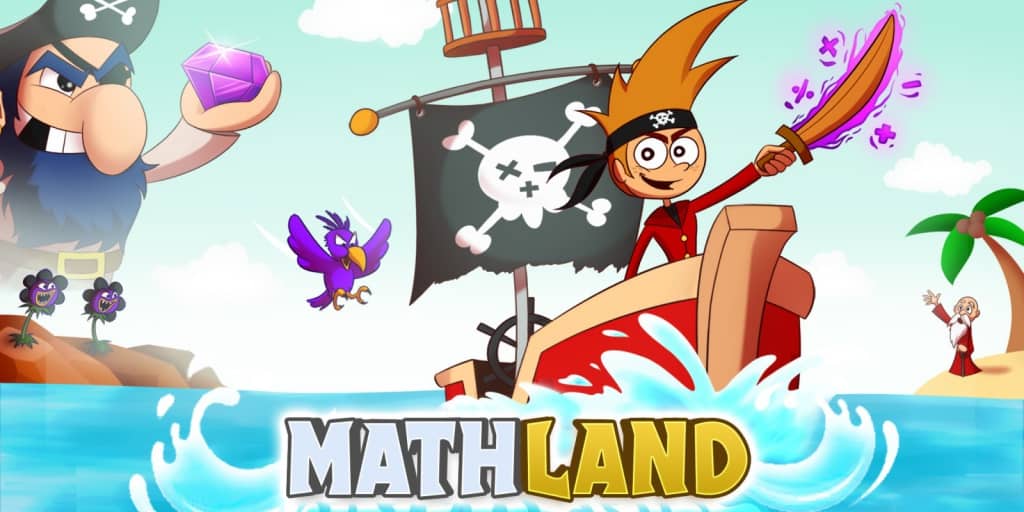
MathLand is a maths game for students with a real blend of adventure, as the math games for learning. It has an exciting plot of a pirate and a mission of restoring the natural balance of the environment, using, of course, maths.
To complete a level, students have to use addition, subtraction, multiplication, division, and counting to help the main character, Ray, navigate through different parts of the sea to find hidden treasure.
MathLand has 25 levels full of surprises and challenges that help your students in building core concepts with 100% focus and participation. All the basic features of the game are free and it is compatible with all android and IOS devices.
#2 - AhaSlides
Best for: Ages 11+
Naturally, there’s always the option to make your own classroom maths game super quickly.
With the right trivia tool, you can create a maths quiz for your students, which they can attempt together in the math games for the classroom or alone at home.
A team maths game on AhaSlides that gets all your students buzzing can be exactly what the doctor ordered for stale, unresponsive classrooms. All they need is a phone or tablet to submit their answers in real-time, just like Kahoot!
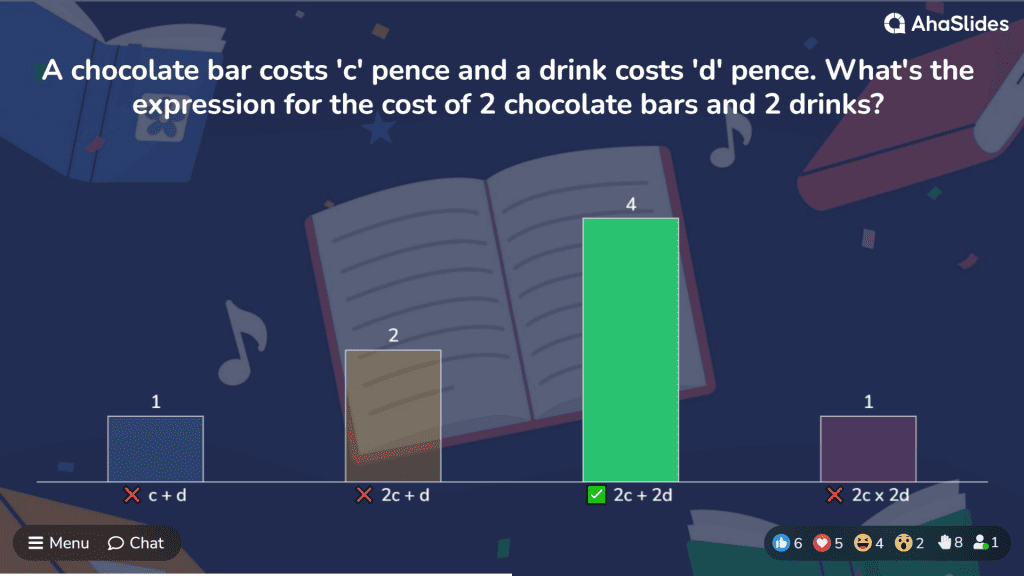
For a Math quiz app, AhaSlides meets teachers' needs with gamification elements like streaks and leaderboards, a quiz lobby and emoji reactions for live engagement, profanity filtering, and survey features like polls and rating scales for instant feedback.
After the quiz, you can see how everyone did with the full class report, which shows the questions that students struggled with and the ones they nailed.
For teachers, AhaSlides has an exclusive deal of just $2.95 per month, or it's completely free if you're teaching a classroom of less than 50 students.
#3 - Prodigy Math Game - Classroom Math Games
Best for: Ages 4 to 14
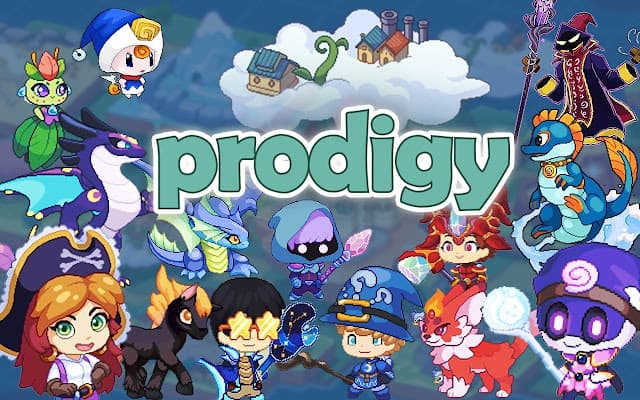
This game has different activities that help in teaching an impressive 900 mathematics skills.
Prodigy Math Game specifically designed for learning fundamental concepts of mathematics, and not only covers a wide range of maths quests in an RPG format, but also provides an option to the teacher through which he or she can easily monitor the progress of the whole class at the same time, as well as individual students.
It comes with an automated assessment option that grades the student for their performance in any game level. All of these assessments happen in real-time, which erases the need for grading or pouring over homework.
#4 - Komodo Math
Best for: Ages 4 to 16
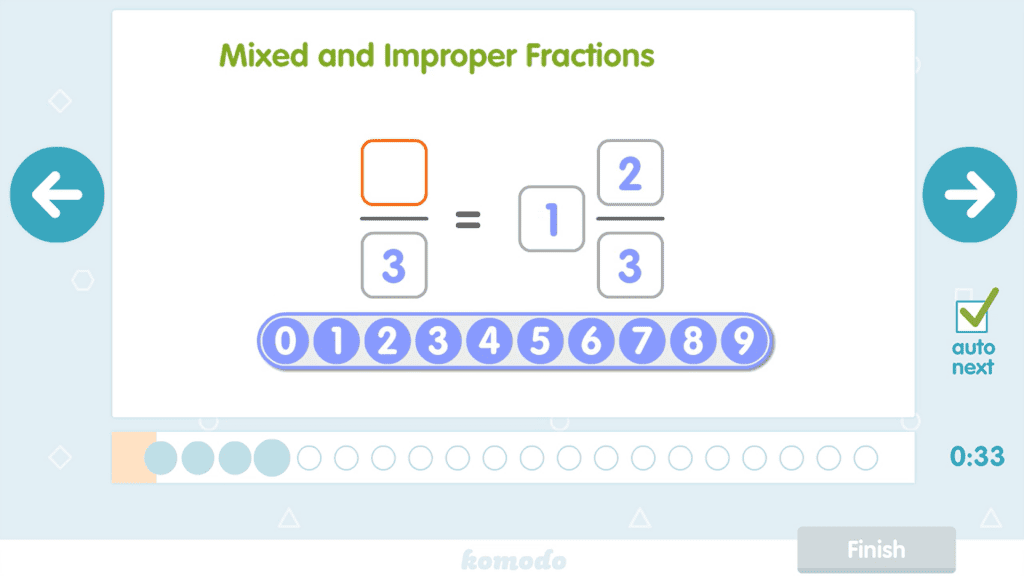
Komodo Math is specifically designed to help both teachers and parents in building mathematical foundations for their children. It works on the rewarding principle, with personalised options that can be changed as per the students’ needs.
What’s great about this classroom maths game is that it’s not just bound to the classroom. Parents can also work with this application at home, and students can practice maths without needing to be in the classroom.
It works on a Duolingo-type level system and boasts a dashboard that helps to monitor progress. It shows how well a student is performing and also helps in highlighting the categories where they are struggling.
Komodo Math is compatible with regular android and IOS phones and does not require any special device.
#5 - Monster Math - Math Games for Classroom
Best for Ages 4 to 12
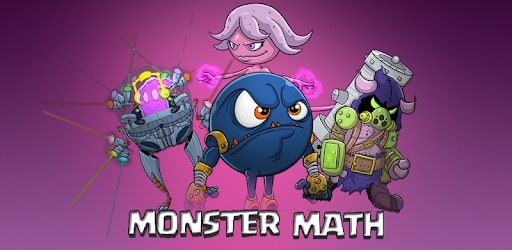
Monster Math helps children practice mathematics while they enjoy and have fun, through very well-designed storylines and characters.
The game lets students roleplay as a monster who has to fight enemies to protect one of his friends. To complete a level, students must work under time limitations to figure out the right answer, or else they’ll not be able to move ahead.
It’s a simple game that imparts the simple skill of calculating and solving arithmetic problems in a time-pressured environment.
#6 - Math Master
Best for: Age 12+. Let's check out fun math games to play in the classroom!
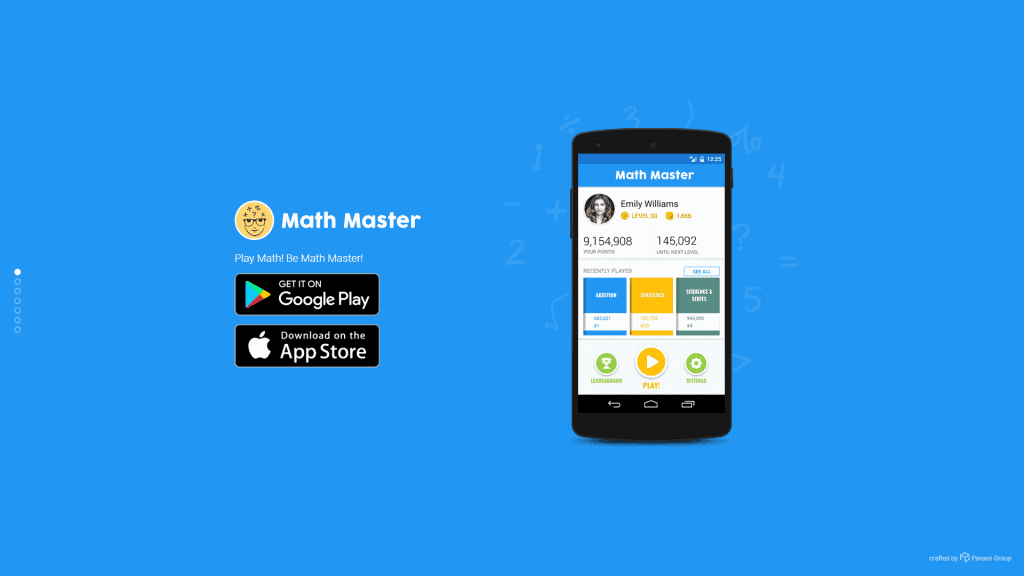
Math Master is possibly the most suitable interactive maths game for students of all ages, with children aged 8 enjoying the simpler stuff and adults enjoying the global challenges.
It has categories of arithmetic problems that can be solved individually, such as division or subtraction problems, or if you want to have a mix of all of these, you can get that as well.
It has true/false arithmetic problems along with equality and memory testing questions. Though it doesn't have the sense of adventure that other student maths games have in this list, it's ideal in prepping for simple exams and helps in overcoming any challenges faced by students in solving arithmetic problems.
#7 - 2048
Best for: Ages 12+
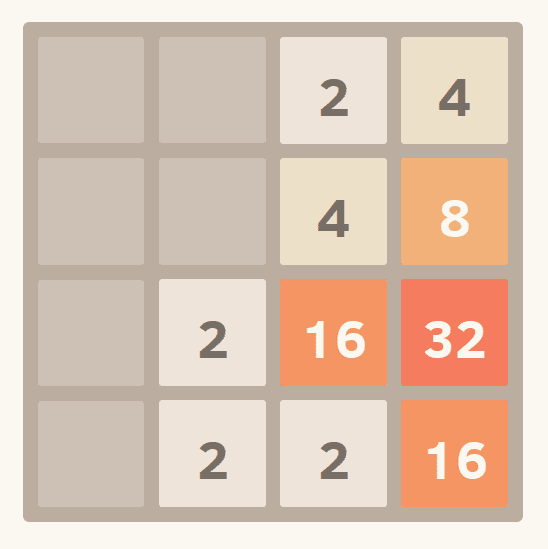
2048 is a bit of a wildcard entry in this list. It’s more of a puzzle game, but is addictive enough for students to learn multiplication math along the way.
It works within a grid of tiles, each with a number which combines when you place two tiles bearing the same number. This game is perfect for most ages of students, but is perhaps best suited for older students as it demands a unique strategy to try and reach the combined number of 2048.
While this mostly works as a puzzle, it’s an undoubted engagement raiser in class and can act as a wonderful ice breaker, as students will surely have numbers on the mind for long afterwards.
2048 is a free game and is compatible with android and IOS devices. You can also play it on laptop through the link above for better visibility in class.
#8 - Quento
Best for: Ages 12+
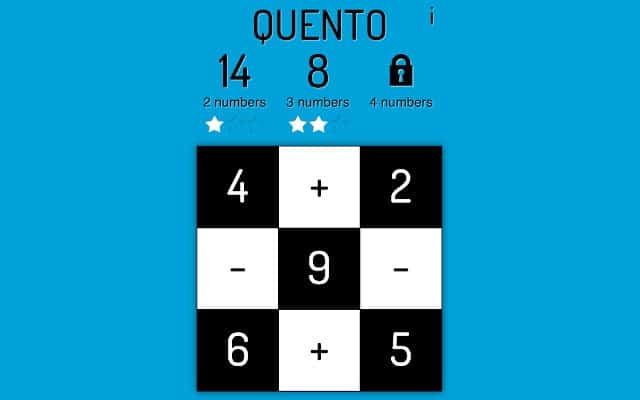
Speaking of puzzles, Quento is a unique and enjoyable classroom maths games, a puzzle for students of all age groups (but maybe best suited for older students).
In Quento students have to make a number by adding or subtracting different available numbers. It works on simple addition and subtractions of numbers, but like 2048, works with moving tiles around the available spaces.
If the number tiles add up to the target number then the player gets a star; once all-stars have been unlocked, the player can move to the next round. It is a colourful and enjoyable puzzle game with different challenges and arithmetic problems.
It’s also a great logical game as it helps students think on multiple levels at once.
#9 - Toon Math
Best for: Ages 6 to 14
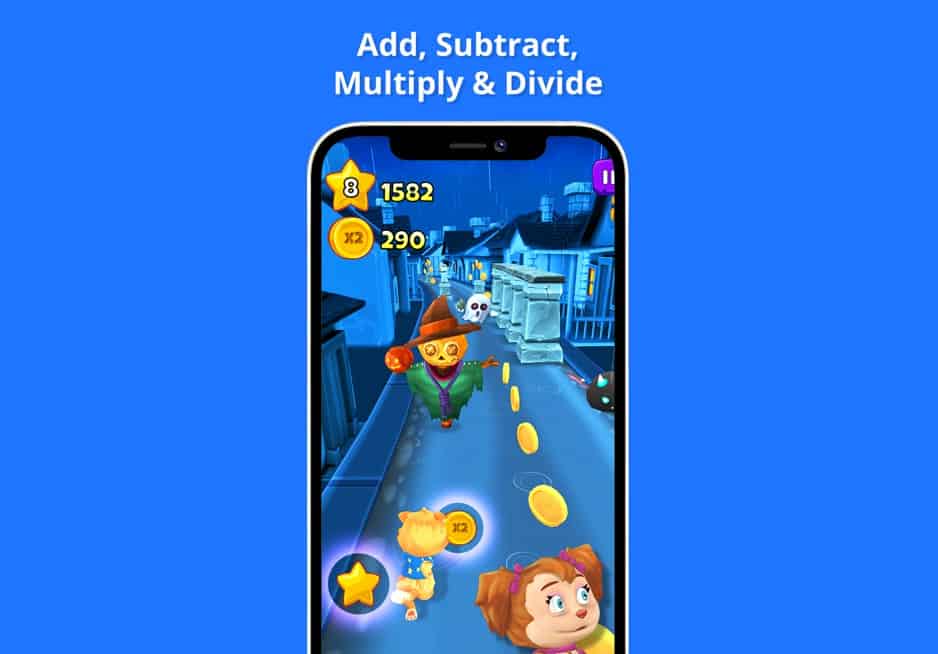
Toon Math, is an interesting school maths game, and not just in the sense that it’s suspiciously similar to the popular game Temple Run.
In the game, the student’s character is being chased by a monster and the student has to use the concepts of addition, subtraction, multiplication to get away from it. Specifically students are presented with maths problems along the way and they have to jump into the lane with the right answer to keep the monster running.
It is a very cute, interesting, and well-structured game that is ideal for kids from grades 1 to 5 who are learning basic arithmetic operations.
Copyright infringement aside, it has a nice balance of adventure, fun, and a sense of learning that Temple Run certainly doesn’t have.
The basic features of Toon Math are free but with upgrades, it can cost up to $14.
#10 - Mental Math Master
Best for: Ages 12+
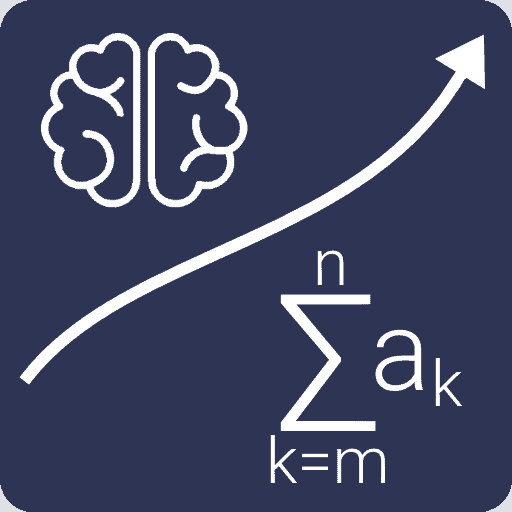
Mental Math Master , as it suggests, is a game of mental maths. There are no adventures, characters or storylines, but the game does boast interesting and challenging levels, each of which requires a new strategy and approach to problem-solving.
Because of that it’s best suited for older students than younger ones. This is also true in the content of the game, which focuses a bit more on higher levels of mathematics including logarithms, square roots, factorials, and other slightly more advanced topics.
The questions themselves are not so straightforward; they require a bit of sharp thinking. That makes it an ideal maths classroom game for students who want to test their skills in mathematics and train themselves for even more challenging arithmetic problems.
Frequently Asked Questions
What is Maths?
Mathematics, often abbreviated as "maths," is a field of study that deals with the logic, structure, and relationships of numbers, quantities, shapes, and patterns. It is a universal language that allows us to understand and describe the world around us through the use of numbers, symbols, and equations.
What fields Maths can be applied to?
Biology, Physics, Science, Engineering, Economics, and Computer science,
Do boys learn Maths faster than girls?
No, there is no evidence to suggest that boys learn maths faster than girls. The idea that one gender is inherently better at maths than the other is a common stereotype that has been disproven by facts!
Best ways to learn Maths?
Use math games to maximize the fun, build a strong foundation, practice regularly, approach maths with a positive attitude, use multiple resources and of course, seek help when needed!








